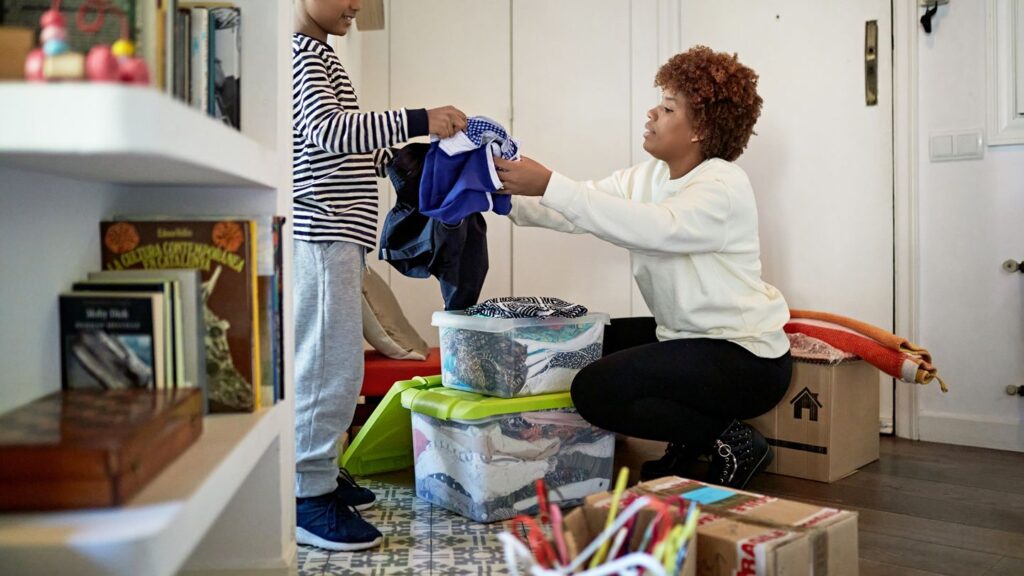Introduction: The Power of Decluttering
In today’s fast-paced world, clutter can silently take over our homes and minds. Decluttering isn’t just about tidying up physical spaces; it’s a process that clears mental pathways, reducing stress and improving productivity. The concept of decluttering has evolved over time, from simple cleaning practices to a complete lifestyle approach. Let’s dive into how decluttering can transform not only your space but also your life.
A Brief History of Decluttering
Decluttering, though a modern buzzword, has roots in ancient philosophies. Minimalism in Japan’s Zen culture and the “less is more” approach of European movements have long advocated simplicity. The modern movement gained traction with the rise of consumer culture, as people began realizing the need to detach from material possessions. With books like Marie Kondo’s The Life-Changing Magic of Tidying Up, decluttering shifted from a chore to a lifestyle revolution.
Why Decluttering is Essential for Mental Well-being
Clutter not only impacts our living spaces but also our mental health. Studies show that living in a cluttered environment can cause anxiety, stress, and even depression. Decluttering is more than just cleaning—it’s a way to create order, clarity, and a sense of control in your life. By letting go of unnecessary items, you’re also clearing mental blocks, which can lead to increased productivity and a calmer mind.
Step-by-Step Guide to Decluttering Your Home
1. Start Small: Choose One Area
When beginning the decluttering process, don’t overwhelm yourself. Pick a small, manageable area—like a drawer or a corner of your room. Once you’ve decluttered this space, the sense of achievement will motivate you to continue.
2. Sort Your Items: Keep, Donate, Toss
This is a critical step. Create three piles: “Keep,” “Donate,” and “Toss.” Be honest with yourself—if an item doesn’t bring you joy or hasn’t been used in the last six months, it might be time to let it go.
3. Organize What You Keep
The goal of decluttering isn’t just to get rid of things, but also to organize what remains. Invest in smart storage solutions, and ensure that everything you keep has a designated place.
4. Create a Maintenance Routine
Decluttering isn’t a one-time activity. Set aside time each week or month to maintain your space and prevent clutter from building up again.
Decluttering for a Minimalist Lifestyle
For some, decluttering is the first step towards adopting a minimalist lifestyle. Minimalism isn’t about having nothing—it’s about keeping only what truly adds value to your life. This mindset shift can lead to more mindful purchasing habits, reduced environmental impact, and a more fulfilling life.
The Benefits of Decluttering Your Digital Space
It’s not just physical spaces that need decluttering—our digital lives can become overwhelming too. Unread emails, unnecessary apps, and duplicate files can slow down our devices and cloud our focus. Taking time to declutter your digital space can make it easier to find important information, enhance productivity, and reduce digital stress.
How Decluttering Can Improve Relationships
Believe it or not, decluttering can also improve relationships. A clutter-free home reduces arguments about chores, creates a more peaceful environment, and allows for better quality time together. When you’re not bogged down by material possessions, you’re more focused on the people around you, fostering deeper connections and more meaningful interactions.
Conclusion: Embrace Decluttering for a Balanced Life
Decluttering isn’t just about throwing things away; it’s a mindset that encourages mindfulness, simplicity, and intentional living. Whether you’re decluttering your home, digital space, or even your thoughts, the benefits are profound. By embracing a clutter-free life, you open up space for what truly matters—whether that’s family, work, or personal growth. Start small, stay consistent, and enjoy the peace and clarity that comes with living a clutter-free life.
Q&A on Decluttering (
Q: How often should I declutter?
A: It’s best to declutter regularly. A weekly or monthly maintenance schedule ensures that clutter doesn’t build up again.
Q: What should I do with items I can’t decide whether to keep or toss?
A: Create a “maybe” box. If you haven’t used or thought about the items in six months, it’s a sign they aren’t essential.
Q: How does decluttering affect productivity?
A: A clutter-free space leads to a clearer mind, allowing you to focus better and work more efficiently.
Q: Can decluttering help with anxiety?
A: Yes, studies show that living in an organized, clutter-free space can significantly reduce stress and anxiety.
Q: Is decluttering expensive?
A: Not at all! In fact, it can save you money by preventing you from buying unnecessary items in the future.


